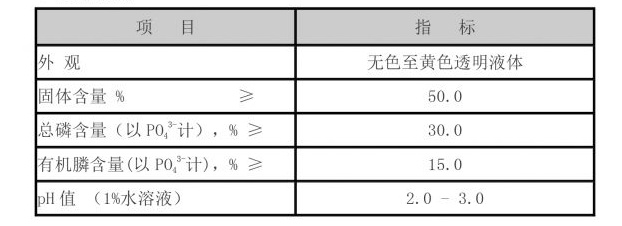water scale inhibitor
Understanding Water Scale Inhibitors Protecting Your Systems from Mineral Buildup
Water scale, primarily composed of calcium carbonate, calcium sulfate, and other inorganic minerals, is a common problem in various water systems, including industrial processes, HVAC systems, and residential plumbing. The accumulation of scale can hinder efficiency, increase maintenance costs, and even damage equipment over time. This is where water scale inhibitors come into play, serving as a vital solution for managing and preventing mineral buildup.
Water scale inhibitors are chemical compounds that are added to water to prevent the formation and deposition of scale
. They work primarily through three mechanisms threshold action, chelation, and crystallization inhibition.1. Threshold Action This mechanism involves the use of specific chemicals that can interfere with the crystallization process of minerals. These inhibitors are effective at low concentrations, meaning that they can prevent scale formation without requiring large doses. By keeping mineral particles in solution rather than allowing them to precipitate out and form scale, these inhibitors help maintain system efficiency.
2. Chelation Chelating agents, another type of scale inhibitor, work by binding to metal ions in the water, effectively interrupting the interactions that lead to scale formation. This process not only prevents scale but also enhances water quality by reducing the presence of heavy metals in the system. Chelating agents can be particularly effective in water with high hardness levels.
water scale inhibitor

3. Crystallization Inhibition Some inhibitors alter the morphology or growth pattern of mineral crystals, preventing them from forming stable structures. By modifying the way crystals grow, these inhibitors can convert potentially problematic mineral deposits into forms that are less likely to adhere to surfaces.
The choice of water scale inhibitor depends on several factors, including the specific minerals present, the operating temperature of the system, and regulatory guidelines. Common types of inhibitors include phosphonates, polyacrylates, and carboxylate-based compounds. It is essential to conduct water analysis to determine which type of inhibitor will be most effective for a given application.
In industrial settings, the consequences of not using scale inhibitors can be severe. Scale buildup can lead to reduced heat transfer efficiency, which increases energy consumption and operational costs. In extreme cases, scale can cause equipment failure, leading to unplanned downtime and costly repairs.
On the residential front, scale can lead to problems in household plumbing, reducing water flow and causing appliances like water heaters and dishwashers to operate less efficiently. This can result in higher energy bills and frequent maintenance.
In conclusion, water scale inhibitors play a crucial role in maintaining system efficiency, reducing maintenance costs, and extending the lifespan of equipment in various applications. By understanding the mechanisms and options available, industries and homeowners alike can take proactive steps to combat the challenges posed by mineral buildup, ensuring smoother operations and better overall water quality. Investing in the right scale inhibitors can save time, money, and resources, making them essential for effective water management.
-
Water Treatment with Flocculant Water TreatmentNewsJun.12,2025
-
Polymaleic AnhydrideNewsJun.12,2025
-
Polyaspartic AcidNewsJun.12,2025
-
Enhance Industrial Processes with IsothiazolinonesNewsJun.12,2025
-
Enhance Industrial Processes with PBTCA SolutionsNewsJun.12,2025
-
Dodecyldimethylbenzylammonium Chloride SolutionsNewsJun.12,2025





